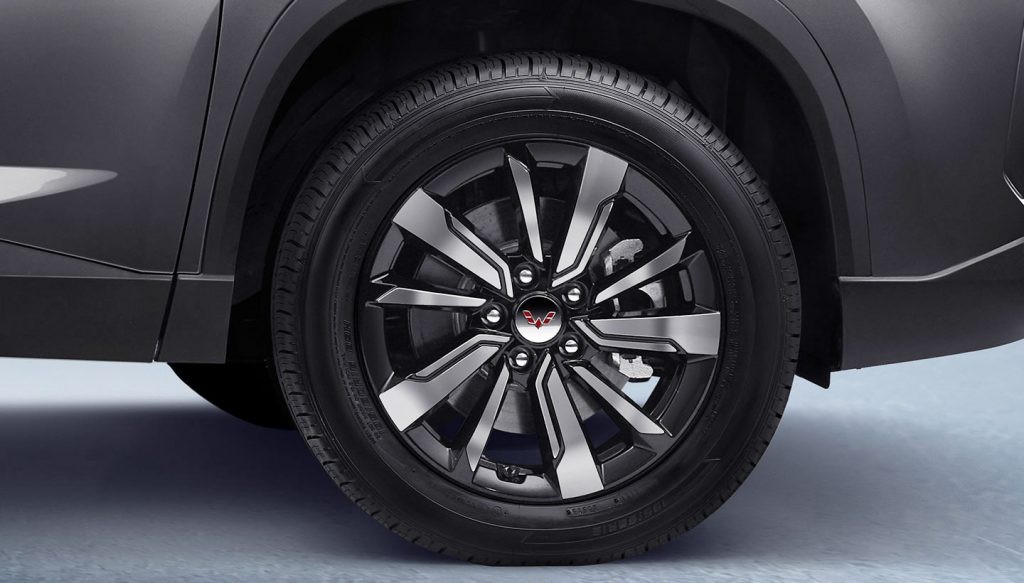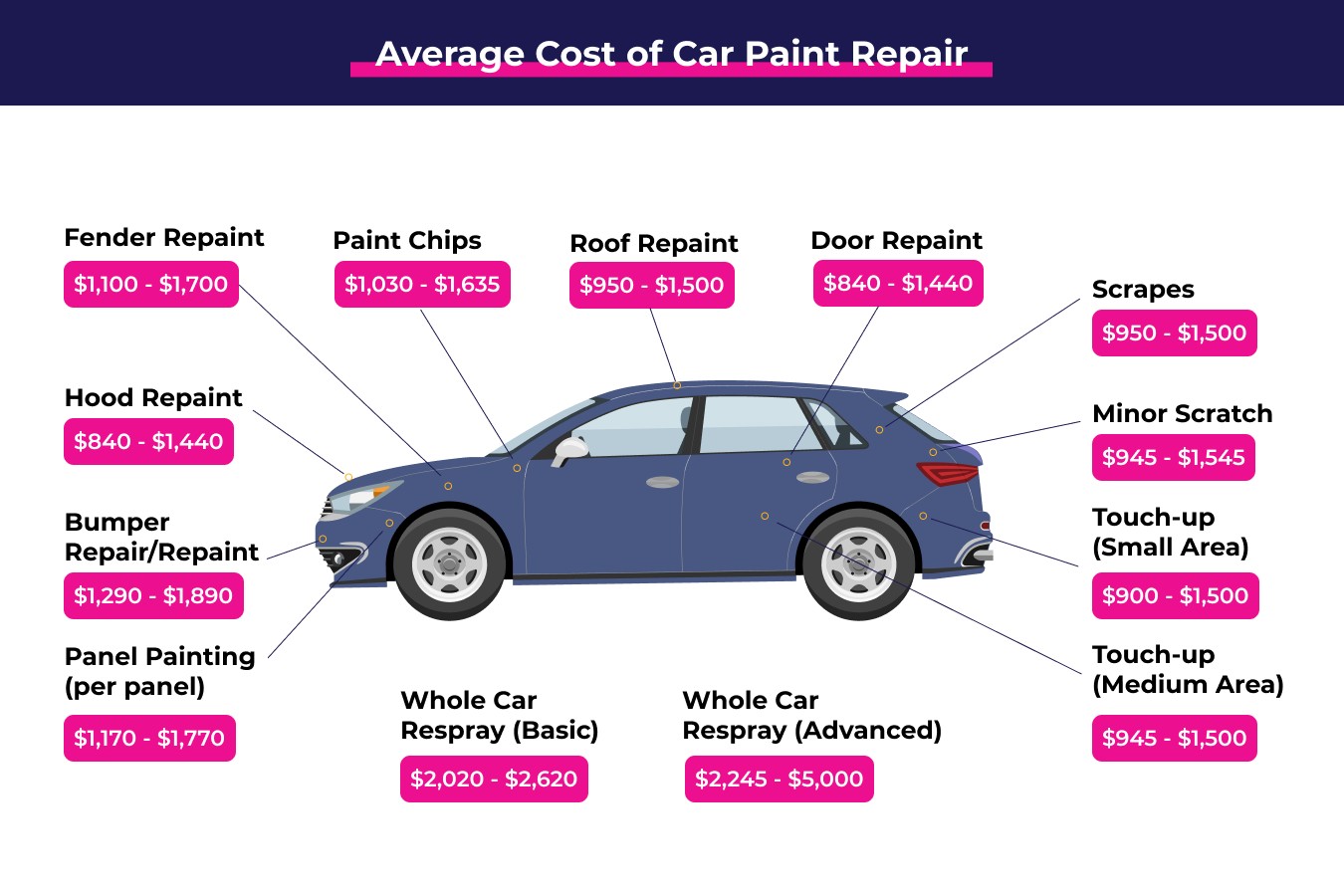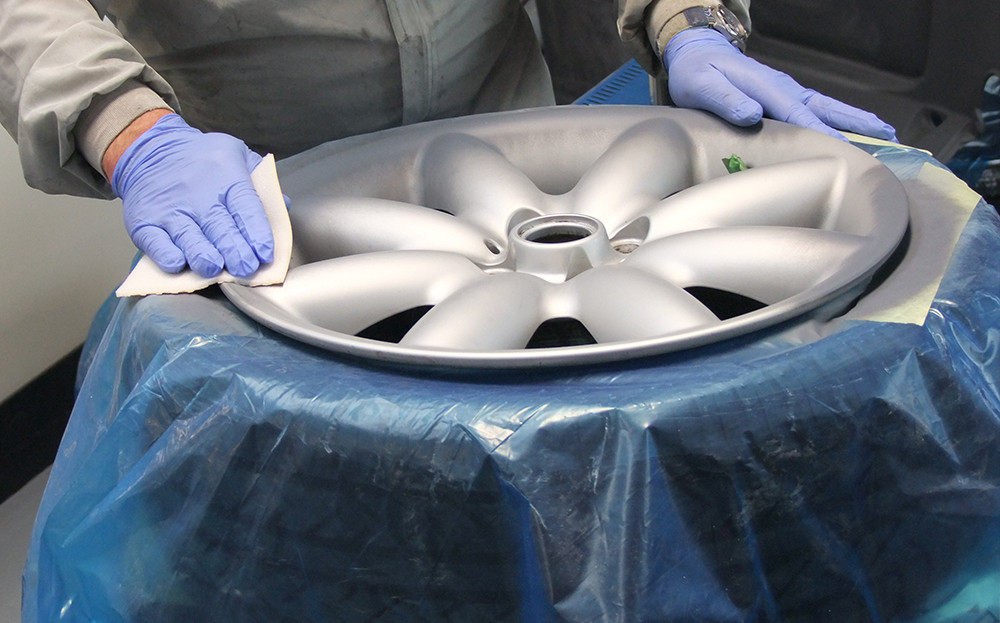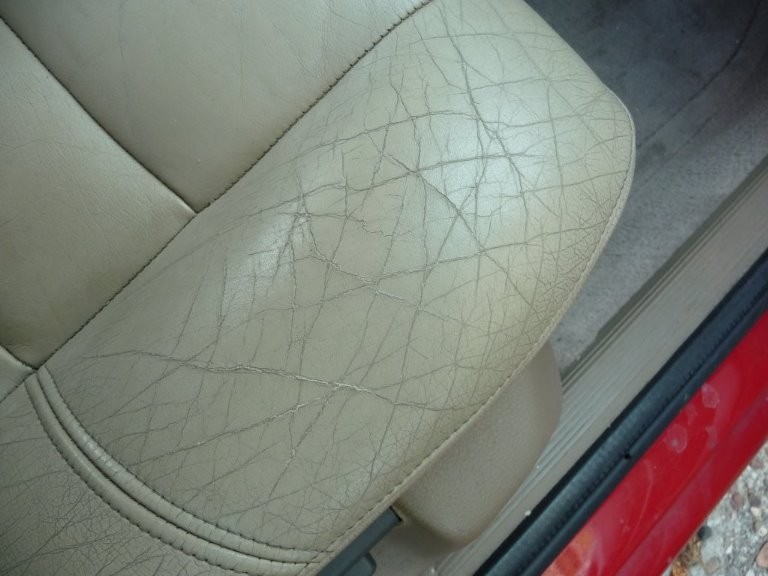How Much Do Car Scratches Cost to Fix? 2024 Guide

Worried about those unsightly scratches on your car? CARDIAGTECH.NET understands your concern and offers solutions to help you estimate repair costs, explore DIY options, and decide when professional help is needed. Let’s dive into the factors affecting car scratch repair expenses and discover how you can restore your vehicle’s flawless finish and explore automotive repair tools.
1. Understanding the Cost Factors of Car Scratch Repair
How Much Do Car Scratches Cost To Fix really depends on a variety of factors. The depth, size, location, and your choice between DIY and professional repair all play significant roles. Let’s explore these aspects to give you a clearer picture.
1.1. Depth and Severity of the Scratch
The primary determinant of repair cost is the scratch’s depth. Car paint typically comprises several layers:
- Clear Coat: The outermost layer protects the paint.
- Base Coat: This layer provides the color.
- Primer: This layer helps the paint adhere to the metal.
- Metal/Plastic: The car’s body material.
 Close up of car scratch repair showing layers of paint | CARDIAGTECH.NET
Close up of car scratch repair showing layers of paint | CARDIAGTECH.NET
Scratches are generally categorized into:
- Surface Scratches (Clear Coat Scratches): Affecting only the clear coat.
- Medium Scratches (Paint Scratches): Penetrating the clear coat and reaching the base coat.
- Deep Scratches (Primer Scratches): Extending through the clear coat, base coat, and primer, possibly exposing the metal.
The deeper the scratch, the more extensive the repair process, thus increasing the cost.
1.2. Size and Location of the Scratch
Larger scratches require more materials and labor, directly impacting the overall cost. The location of the scratch also matters. Scratches on easily accessible, flat surfaces are simpler to repair than those in complex areas like bumpers or around door handles.
1.3. DIY vs. Professional Repair
The choice between fixing the scratch yourself or hiring a professional significantly affects the expense.
- DIY Repair: Can be cost-effective for minor scratches, requiring materials like scratch repair kits, polishing compounds, and touch-up paint.
- Professional Repair: Essential for deeper scratches, ensuring a flawless finish. Auto body shops have specialized equipment and expertise, but their services come at a higher price.
1.4. Type of Vehicle and Paint
Luxury vehicles or those with specialty paint finishes (e.g., metallic, pearlescent) typically incur higher repair costs due to the complexity of matching the paint and the specialized techniques required.
1.5. Regional Price Differences
Labor costs vary by region. Metropolitan areas or regions with a higher cost of living tend to have pricier auto repair services.
2. Decoding the Types of Car Scratches and Their Corresponding Costs
How Much Do Car Scratches Cost To Fix is often tied to the type of scratch. Here’s a detailed breakdown to help you understand potential repair expenses:
2.1. Surface Scratches or Scuffs
These are the most minor types of scratches, affecting only the clear coat. They often appear as light scuff marks or swirl patterns.
- Appearance: Superficial and often invisible from a distance.
- DIY Repair Cost: $20 – $50 (for polishing compounds and applicators)
- Professional Repair Cost: $50 – $150
2.2. Clear Coat Scratches
Slightly deeper than surface scratches, these penetrate the clear coat but don’t reach the paint layer.
- Appearance: Visible but not exposing the base coat color.
- DIY Repair Cost: $30 – $80 (including sandpaper, polishing pads, and compounds)
- Professional Repair Cost: $150 – $300
2.3. Paint Scratches
These scratches go through the clear coat and into the base coat, exposing the car’s color.
- Appearance: Noticeable, with the base coat color visible.
- DIY Repair Cost: $50 – $150 (including touch-up paint, primer, and clear coat)
- Professional Repair Cost: $400 – $1,000 (may require panel repainting)
2.4. Deep Scratches
These are the most severe, penetrating through the clear coat, base coat, and primer, potentially exposing the metal.
- Appearance: Easily visible, exposing the bare metal or plastic.
- DIY Repair Cost: $100 – $200 (requiring extensive materials and time)
- Professional Repair Cost: $800 – $1,500 (may involve bodywork and repainting)
| Scratch Type | Depth | DIY Repair Cost | Professional Repair Cost |
|---|---|---|---|
| Surface Scratches | Clear Coat Only | $20 – $50 | $50 – $150 |
| Clear Coat Scratches | Through Clear Coat | $30 – $80 | $150 – $300 |
| Paint Scratches | Through Clear Coat and Base Coat | $50 – $150 | $400 – $1,000 |
| Deep Scratches | Through All Layers, Exposing Metal | $100 – $200 | $800 – $1,500 |
3. DIY Car Scratch Repair: A Step-by-Step Guide
For minor scratches, DIY repair can save you money. Here’s a detailed guide:
3.1. Assessing the Scratch
Carefully inspect the scratch to determine its depth and size. If it’s just a surface scratch or a clear coat scratch, you can likely handle it yourself.
3.2. Gathering the Necessary Materials
- Car Wash Soap: To clean the area.
- Microfiber Towels: For cleaning and polishing.
- Scratch Repair Kit: Contains polishing compound, applicators, and clear coat.
- Sandpaper (3000-grit): For smoothing rough edges.
- Touch-Up Paint: Matching your car’s color code (for paint scratches).
- Primer: For deep scratches exposing metal.
- Clear Coat: To seal and protect the repaired area.
- Polishing Compound: To restore shine.
- Wax: To protect the repaired area.
3.3. Step-by-Step Repair Process
- Clean the Area: Wash the area around the scratch with car wash soap and water. Dry thoroughly with a microfiber towel.
- Sand the Scratch (if necessary): For clear coat or paint scratches, gently sand the area with 3000-grit sandpaper to smooth rough edges. Wet the sandpaper and use light pressure.
- Apply Polishing Compound: Use a polishing pad or microfiber towel to apply the polishing compound to the scratched area. Rub in a circular motion, applying moderate pressure.
- Wipe Away Excess Compound: Use a clean microfiber towel to remove any excess polishing compound.
- Apply Touch-Up Paint (if necessary): For paint scratches, apply a thin layer of primer to the exposed metal or plastic. Let it dry completely. Then, apply thin layers of touch-up paint, allowing each layer to dry before applying the next.
- Apply Clear Coat (if necessary): After the touch-up paint is dry, apply a thin layer of clear coat to seal and protect the area.
- Polish the Repaired Area: Once the clear coat is dry, use the polishing compound again to blend the repaired area with the surrounding paint.
- Apply Wax: Finish by applying a coat of wax to protect the repaired area and enhance the shine.
3.4. Tips for a Successful DIY Repair
- Work in a Clean Environment: Avoid dust and debris that can contaminate the repair.
- Use the Right Tools: Invest in quality materials for better results. CARDIAGTECH.NET offers a range of tools to assist you. Contact us at +1 (641) 206-8880 for expert advice.
- Take Your Time: Rushing can lead to mistakes. Allow each layer to dry properly.
- Watch Tutorials: Online videos can provide visual guidance.
4. When to Seek Professional Car Scratch Repair
While DIY repair is suitable for minor scratches, certain situations warrant professional attention:
4.1. Deep Scratches Exposing Metal
These require specialized tools and expertise to prevent rust and ensure proper paint adhesion.
4.2. Large or Complex Scratches
Scratches covering a large area or located in difficult-to-reach spots are best handled by professionals.
4.3. Scratches on Luxury or Specialty Paint Finishes
Matching these finishes requires precision and specialized techniques.
4.4. Lack of Confidence in DIY Skills
If you’re unsure about performing the repair yourself, it’s best to seek professional help to avoid further damage.
4.5. Potential for Further Damage
Attempting to repair severe scratches without the proper tools or knowledge can lead to more significant damage, increasing overall repair costs.
5. Choosing the Right Auto Body Shop
If you decide to seek professional repair, selecting the right auto body shop is crucial.
5.1. Research and Reviews
Check online reviews and ratings to gauge the shop’s reputation. Look for shops with consistently positive feedback.
5.2. Certifications and Affiliations
Ensure the shop is certified by reputable organizations like ASE (Automotive Service Excellence).
5.3. Estimates and Quotes
Get estimates from multiple shops to compare prices and services. Make sure the estimate includes a detailed breakdown of costs.
5.4. Warranty
Inquire about the shop’s warranty policy. A good shop will offer a warranty on their work.
5.5. Visit the Shop
Visit the shop to assess its cleanliness and organization. A well-maintained shop is more likely to provide quality service.
6. Understanding the Professional Car Scratch Repair Process
Knowing what to expect during professional repair can help you make informed decisions.
6.1. Assessment
The shop will assess the scratch to determine the extent of the damage and the necessary repairs.
6.2. Preparation
The area around the scratch will be cleaned and masked off to protect the surrounding paint.
6.3. Sanding and Filling
For deeper scratches, the area may be sanded down and filled with body filler to create a smooth surface.
6.4. Priming
A primer is applied to the repaired area to ensure proper paint adhesion.
6.5. Painting
The base coat is applied to match the car’s color. Multiple coats may be necessary for a perfect match.
6.6. Clear Coat Application
A clear coat is applied to protect the paint and provide a glossy finish.
6.7. Polishing and Buffing
The repaired area is polished and buffed to blend it seamlessly with the surrounding paint.
7. Cost-Saving Tips for Car Scratch Repair
How much do car scratches cost to fix can be managed with these tips:
7.1. Get Multiple Estimates
Comparing quotes from different shops can help you find the best price.
7.2. Consider Mobile Repair Services
Mobile repair services can be more convenient and sometimes cheaper than traditional auto body shops.
7.3. Bundle Repairs
If you have multiple scratches or other minor damages, repairing them all at once can save on labor costs.
7.4. Maintain Your Car’s Paint
Regular washing and waxing can protect your car’s paint and prevent minor scratches.
7.5. Use Protective Measures
Consider using paint protection film or ceramic coatings to shield your car’s paint from scratches.
8. Preventative Measures to Minimize Car Scratches
Prevention is always better than cure. Here are some measures to minimize the risk of car scratches:
8.1. Park Carefully
Avoid parking too close to other vehicles or in tight spaces.
8.2. Avoid Automatic Car Washes
These can cause swirl marks and scratches. Opt for hand washing.
8.3. Use Car Covers
When parking outdoors, use a car cover to protect the paint from scratches and other damages.
8.4. Be Mindful of Your Surroundings
Watch out for branches, bushes, and other objects that could scratch your car.
8.5. Regular Washing and Waxing
Keep your car clean and protected with regular washing and waxing.
9. The Role of Car Insurance in Covering Scratch Repair Costs
Whether your car insurance covers scratch repair depends on your policy and the circumstances.
9.1. Comprehensive Coverage
This covers damages from incidents other than collisions, such as vandalism or natural disasters. If your car is scratched due to vandalism, your comprehensive coverage may cover the repair costs, subject to your deductible.
9.2. Collision Coverage
This covers damages from collisions with other vehicles or objects. If your car is scratched in an accident, your collision coverage may apply.
9.3. Deductible
This is the amount you must pay out-of-pocket before your insurance covers the remaining costs. If the repair cost is less than your deductible, it may not be worth filing a claim.
9.4. Filing a Claim
Consider the impact on your insurance premiums before filing a claim for scratch repair. Multiple claims can increase your premiums.
9.5. When to File a Claim
File a claim if the repair costs are significantly higher than your deductible and you are not at fault.
10. CARDIAGTECH.NET: Your Partner in Automotive Care
At CARDIAGTECH.NET, we understand the importance of maintaining your vehicle’s appearance and performance. We offer a comprehensive range of tools and equipment to help you handle car scratch repairs efficiently.
10.1. High-Quality Tools for DIY Repairs
From polishing compounds to touch-up paint kits, we provide top-notch products to assist you in DIY scratch repairs.
10.2. Expert Advice and Support
Our team of experienced professionals is always ready to provide guidance and support, ensuring you choose the right tools and techniques for your specific needs.
10.3. Solutions for Professionals
For auto body shops and professional technicians, we offer a wide selection of advanced diagnostic and repair tools to enhance your service capabilities.
10.4. Commitment to Excellence
We are committed to delivering excellence in both product quality and customer service. At CARDIAGTECH.NET, your satisfaction is our priority.
Don’t let car scratches diminish your vehicle’s value and appeal. Contact CARDIAGTECH.NET today at +1 (641) 206-8880 or visit our website CARDIAGTECH.NET at 276 Reock St, City of Orange, NJ 07050, United States to explore our extensive range of automotive solutions and discover how we can help you keep your car looking its best. Our team is ready to provide personalized advice and support, ensuring you have the tools and knowledge needed for successful car scratch repairs. Act now and let CARDIAGTECH.NET be your trusted partner in automotive care.
Frequently Asked Questions (FAQ)
1. How much does it cost to fix a minor scratch on a car?
For minor scratches affecting only the clear coat, DIY repairs can cost between $20 and $50. Professional repairs typically range from $50 to $150.
2. What is the average cost to repair a deep car scratch?
Deep scratches that penetrate through all paint layers and expose the metal can cost between $800 and $1,500 for professional repair, potentially including bodywork and repainting.
3. Can I use touch-up paint for car scratch repair?
Yes, touch-up paint is effective for paint scratches that penetrate the clear coat and reach the base coat. Ensure the color matches your car’s paint code for the best results.
4. Is it worth filing an insurance claim for a car scratch?
Consider your deductible and the potential impact on your insurance premiums. If the repair cost is lower than your deductible or the scratch was caused by you, it may not be worth filing a claim.
5. How can I prevent car scratches?
Park carefully, avoid automatic car washes, use car covers, be mindful of your surroundings, and regularly wash and wax your car to minimize the risk of scratches.
6. What tools do I need for DIY car scratch repair?
Essential tools include car wash soap, microfiber towels, a scratch repair kit, sandpaper (3000-grit), touch-up paint, primer, clear coat, polishing compound, and wax. CARDIAGTECH.NET offers a variety of these tools.
7. How do I find a reputable auto body shop for scratch repair?
Check online reviews, ensure the shop is certified by organizations like ASE, get multiple estimates, inquire about warranty policies, and visit the shop to assess its cleanliness and organization.
8. What does comprehensive car insurance cover regarding scratches?
Comprehensive coverage typically covers scratches caused by incidents other than collisions, such as vandalism or natural disasters, subject to your deductible.
9. How long does car scratch repair take?
DIY repairs can take a few hours, depending on the scratch’s severity. Professional repairs can take anywhere from a few hours to a few days, depending on the extent of the damage and the shop’s workload.
10. Can mobile repair services fix car scratches?
Yes, mobile repair services can fix minor to moderate scratches. They are often more convenient and sometimes cheaper than traditional auto body shops.






